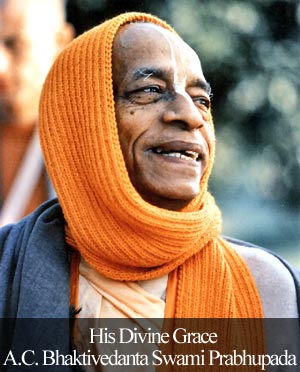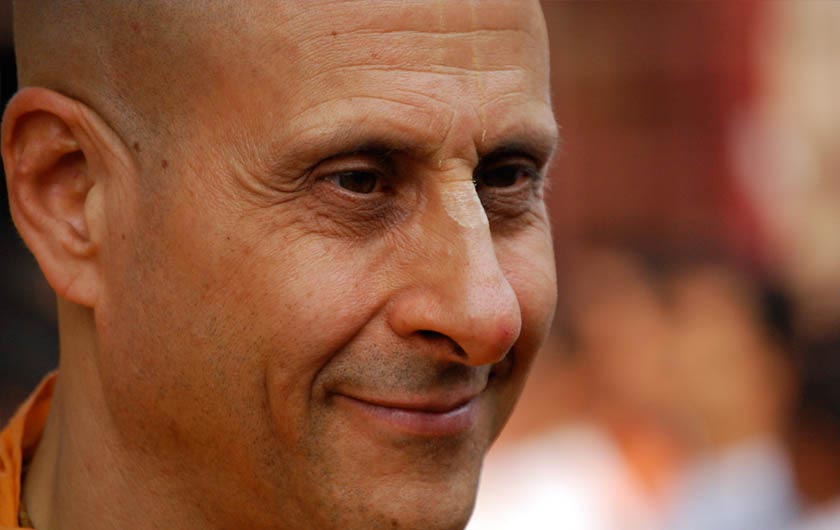
At the yoga conference Richard became good friends with Bhikku Vivekananda, a spiritual leader from Thailand, who had thousands of students at his monastery. They attended a lecture of J.Krishnamurthi, a world renowned author and orator. Born in South India in 1895, he was educated in England and at the age of twenty seven formally accepted the role of the enlightened master, and was worshipped by over 60,000 members. But seven years later, in 1929, he rejected his position and dissolved his religious movement. In his fiery speech, he enthusiastically called for all to reject ashrams, for they are simply concentration camps for the mind. He also declared spiritual gurus to be dictators, and meditation systems to be futile. Richard thought of his friend Bhikku, and wondered how he would react to this call for revolution. Bhikku accepted Krishnamurti’s words as true, and joked, “I will reject the teachings of the teacher who teaches us to reject teachers and teachings.”
Richard felt that although Krishnamurti was a great debater, on a personal level he was gentle, kind and humorous. He then pondered on his teachings: “Eastern literature was filled with histories of enlightened saints who carefully followed their religion or their particular Guru. How could I disregard them all on the basis of one man’s realizations? However, Krishnamurti had impressed upon me that superficiality had no place in spiritual life. We must take personal responsibility. If we become overly attached to the externals, we may forget their very purpose: to purify the heart.”
Radhanath Swami balances the need for rituals with an awareness of its purpose. He emphasizes that Rituals are certain practices- unique to each religious tradition- that prescribe procedures for worshipping God. A religious person, through a set pattern of behaviour, regularly performs these ceremonies. However, today these customs have earned a negative connotation and have been misunderstood by many. This is due to the rituals being used to serve different purposes (other than service to God); they often help a person express his loyalty to a religion, or helps gain acceptance within a community. These practices-obliging a person from birth to death- also consume substantial time, money and energy of the practitioner. Thus the rituals which are in essence positive facilitators to remember and serve God, get diluted, and are reduced to mechanical, repetitive acts. Not surprisingly intelligent people like J. Krishnamurti are put off by these blind rituals.
The purpose of rituals is to reawaken the divine love of God that’s within every living entity. This love, although natural, is presently covered by the thick layer of material consciousness. A set of rituals are thus offered by the founders and teachers of each faith, to help the followers gradually purify their consciousness of material contamination. For example, in the Indian culture, we perform the aarati ceremony where a devotee offers fragrant incense, fire lamp, and water to God. These rituals are intended to help the devotee realize that God is the source of fragrance (corresponds to the incense offered), heat (connected to the fire lamp), and all other elements in this material creation. A devotee acknowledges God’s proprietorship and our dependence on Him for basic amenities. Through the aarati ceremony, we offer the elements back to God, reciprocating with His kindness and expressing our intention to love Him.
Radhanath Swami urges us to always remember this goal of rituals, “When we forget this divine purpose of rituals- connecting our consciousness with the Supreme consciousness, God- and instead get distracted by the loud and grandiose externals, the rituals become an end in themselves. The traffic laws have a purpose; to help the driver reach his destination smoothly. If a motorist is unsure of his destination, he’s eventually lost despite his strict following of the traffic rules. Similarly, if the follower of a religious faith is unaware of the goal of spiritual enlightenment, he’s lost in the material world, even in the garb of a religious conviction. Then the rituals have the opposite effect of what they’re supposed to achieve-they keep a person bound in material consciousness.”
 Table of Contents
Table of Contents

 Founder-acharya of the International Society For Krishna Consciousness (ISKCON)
Founder-acharya of the International Society For Krishna Consciousness (ISKCON) “Go to India” a sweet but commanding voice; spoke up in the heart of young Richard (later Radhanath Swami) who was immersed in meditation, his search for meaning in life has brought him to the Isle of Crete. Today he was ordered to go to India. Born and raised in the middle class suburbs of Chicago, Radhanath swami grew up in the 1950’s and 60’s era when popular musicians protested war, prejudice and social injustice. Radhanath swami would listen to these songs again and again, but their lyrics referring to God stirred his soul. Peter, Paul and Mary- the folk trio from Greenswich village sang in their debut album
“Early in the morning, about the break of day
I ask the Lord, to help me find my way”
This simple prayer was to guide Radhanath swami in the coming years of his life........
“Go to India” a sweet but commanding voice; spoke up in the heart of young Richard (later Radhanath Swami) who was immersed in meditation, his search for meaning in life has brought him to the Isle of Crete. Today he was ordered to go to India. Born and raised in the middle class suburbs of Chicago, Radhanath swami grew up in the 1950’s and 60’s era when popular musicians protested war, prejudice and social injustice. Radhanath swami would listen to these songs again and again, but their lyrics referring to God stirred his soul. Peter, Paul and Mary- the folk trio from Greenswich village sang in their debut album
“Early in the morning, about the break of day
I ask the Lord, to help me find my way”
This simple prayer was to guide Radhanath swami in the coming years of his life........
Maharaj wonderfully explains meaning beyond rituals.
View CommentIt’s wonderful story. How important it is to be deep in understanding of GOD. Or we will fight in the name of religion.
View CommentThis book can transform any one’s heart….
View CommentVery Enlightining article. Thanks
View CommentVery good article, HariBol
View CommentIt is true that we get lost in rituals and forget that real thing is love of god.
View Commentvery much true !!!
View CommentSpirituality is a often debated topic and views differ as per conditioning of a person and this is based on the religion one follows. Radhanath Swami makes it very clear it is important to understand our relation with GOD and thus have a service attitude to please GOD – not what I can get out of GOD
View CommentRadhanath Swami is showing us the way who rituals could help us in becoming more spiritual. We usually accept things on superficial platform but when someone like Radhanath Swami explains then it makes more sense.
View CommentMuch appreciated. Thanks for putting this up.
View CommentVery basic at the same time most misunderstood point in our daily practices. Its so amazing how clearly and distinctly Maharaj has given the required message.
View Commentreal religion is to surrender to lord and we learn through teachings of HH radhanath maharaj
View CommentIt’s necessary for someone like HH Radhanath Maharaj to explain the people what real religion is all about. We appreciate your effort, Radhanath Maharaj.
View CommentI came across a lady, not an Iskcon devotee, who told me that she found the book T J H so interesting that she read it three times. This has inspired me to read the book for the second time.
View Commentwonderful
View CommentThe book provide us the message on how one should submit these human life in service of devotees.
View CommentOne can read it as many times…..
View CommentEvery time new insite to Maharaj’s devotional qualities
Yes, its the essence of Bhagavad Gita as well, to go beyond the shallow religions. Lord Krishna says there,” Sarva Dharman Parityajya…” HH Radhanath Swami brings out this essential point in a very fascinating way that even a unseasoned seeker of Truth can also understand this essential conclusion of Gita.
View CommentWonderfully explained by Radhanath Swami Maharaj about “Going beyond shallow religion” and at the end the quote is more important which says “if the follower of a religious faith is unaware of the goal of spiritual enlightenment, he’s lost in the material world, even in the garb of a religious conviction. Then the rituals have the opposite effect of what they’re supposed to achieve-they keep a person bound in material consciousness.”
View CommentNice piece. Good to discover this and will certainly check back.
View CommentExcellent realization. All rituals are mere waste if the purpose is neglected. Radhanath Swami’s analogy of motorist is really very appropriate.Thank you very much.
View CommentGreat I have read your article and by the way I found you website on Bing and I think after I read somepost on you website especially this one I have my own opinion about what should I tell on the next hang out with my boy friend, maybe today I will tell my familyabout this one and get debate.
View Commentvery clear understanding of RITUALS presented by Radhanath Swami with an excellent and simple example of motorist and his destination.Thankyou.
View CommentSuch a wonderful realisation. Radhanath Swami imbibed this into his life and later on completely dedicated himself to following the teachings of his guru Srila Prabhupada.
View Commentvery nice
View CommentIt is wonderful to see Radhanath Swami learning something from everybody he meets, whether he agrees to their teachings in toto or not.
View CommentRather a exciting post. I just love the title Radhanath Swami | Meditation – Entitled Going beyond superficial rituals and shallow religion. How brilliant!
View Comment“Radhanath Swami balances the need for rituals with an awareness of its purpose.” Simply Beautiful.
View CommentRadhanath Swami, very nicely explains the difference between “Rital” and “Spiritual”.
View CommentIm thankful for the article post.Thanks Again. Much obliged.
View Commentif spirit is taken away from spiritual what remains is only ritual! this is so beautifully explained by maharaj!
View CommentWe have a tendency to always focus on the rituals and notthe essence. Thank you Radhanath Swami for reminding us of the true purpose of practicing devotional service.
View CommentActually before coming to Krishna Conciousness, I also used to wonder on the rituals which people in the society follow without knowing that all these rituals are to please the Supreme Lord. And because of not knowing this, many turn to atheism later. Thank you Radhanath Swami for making us aware about this fact.
View CommentAmazing article! Gives us insight about rituals and how we should understand the meaning behind these rituals which ultimately help us in purifying our consciousness.
View Comment